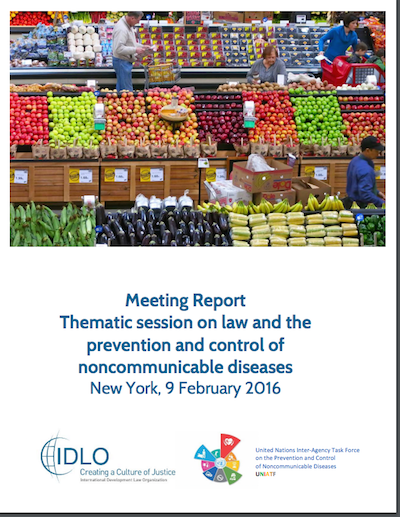
More than 45 experts on non-communicable diseases (NCDs) met in New York this week to discuss the legal and regulatory measures needed to respond to the growing global pandemics of NCDs, including diabetes, cancer, and cardiovascular and chronic lung diseases.
NCDs kill almost 40 million people a year, and 80% of early deaths due to NCDs occur in low- and middle-income countries. Risk factors for the major NCDs include tobacco, alcohol abuse, unhealthy diets and lack of physical activity.
Members of the United Nations Inter-Agency Task Force on the Prevention and Control of NCDs, as well as academics and civil society representatives, presented recommendations on how to further capacity-building, networking and research around NCDs and development; in particular, the participants discussed how to translate knowledge into action.
‘Developing countries really need our help to respond to NCDs,’ said David Patterson, IDLO’s senior health law expert. ‘They pretty much know what to do – the so-called World Health Organization (WHO) ‘best buys’ – but need assistance getting the legal frameworks right.’
Stressing the importance of creating enabling legal environments, Dr Ahmed Ogwell Ouma, Regional Advisor on Tobacco Control for WHO’s Africa Office, spoke of his experience, "in Africa, when dealing with tobacco control, we provide legal technical support to create "good laws" that are more difficult to challenge."
The session - hosted by IDLO in collaboration with United Nations Development Programme and World health Organization - was convened in preparation for the 6th NCDs Task Force Meeting scheduled to take place from 10 to 12 February. Read more on IDLO's work with Non-Communicable Diseases.
Meeting Report available for download below



